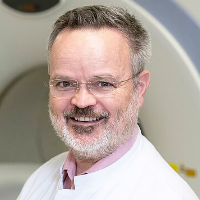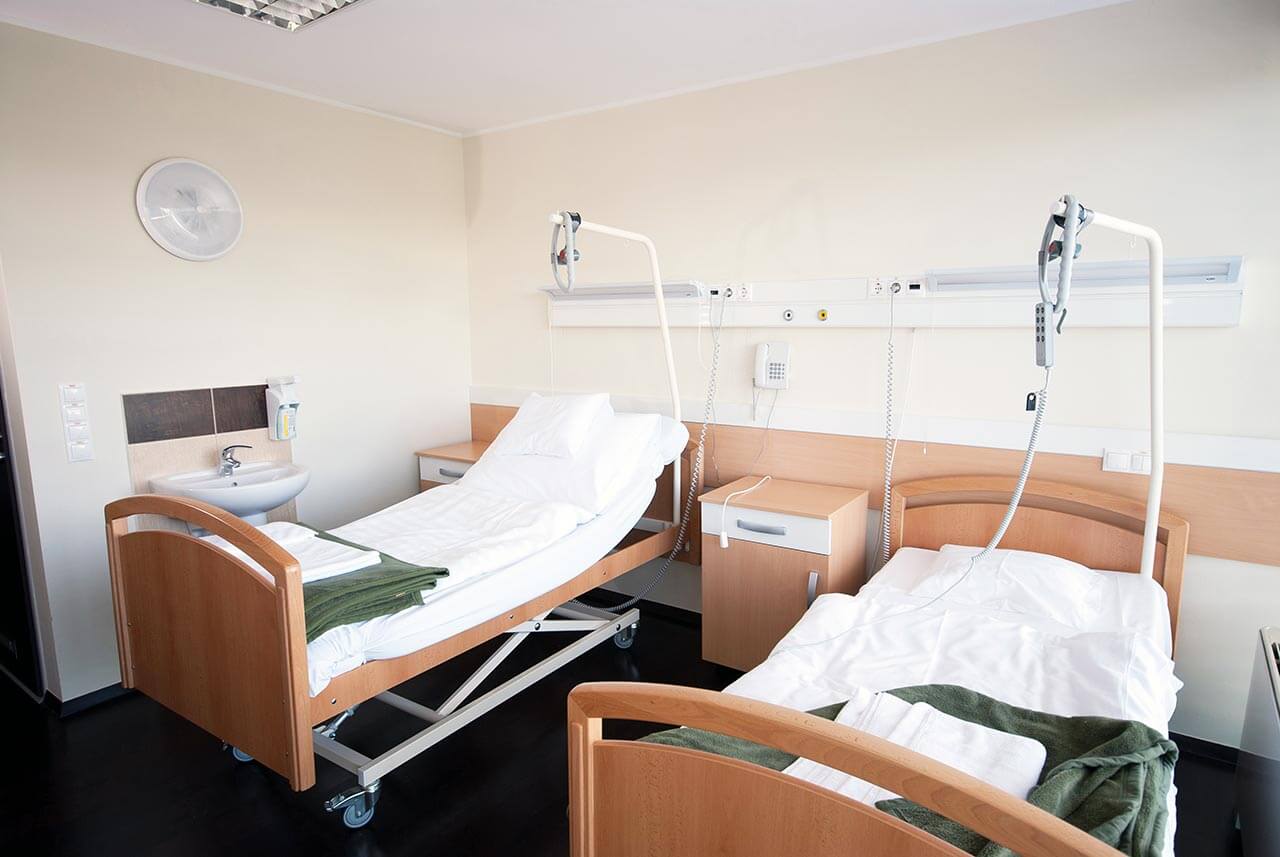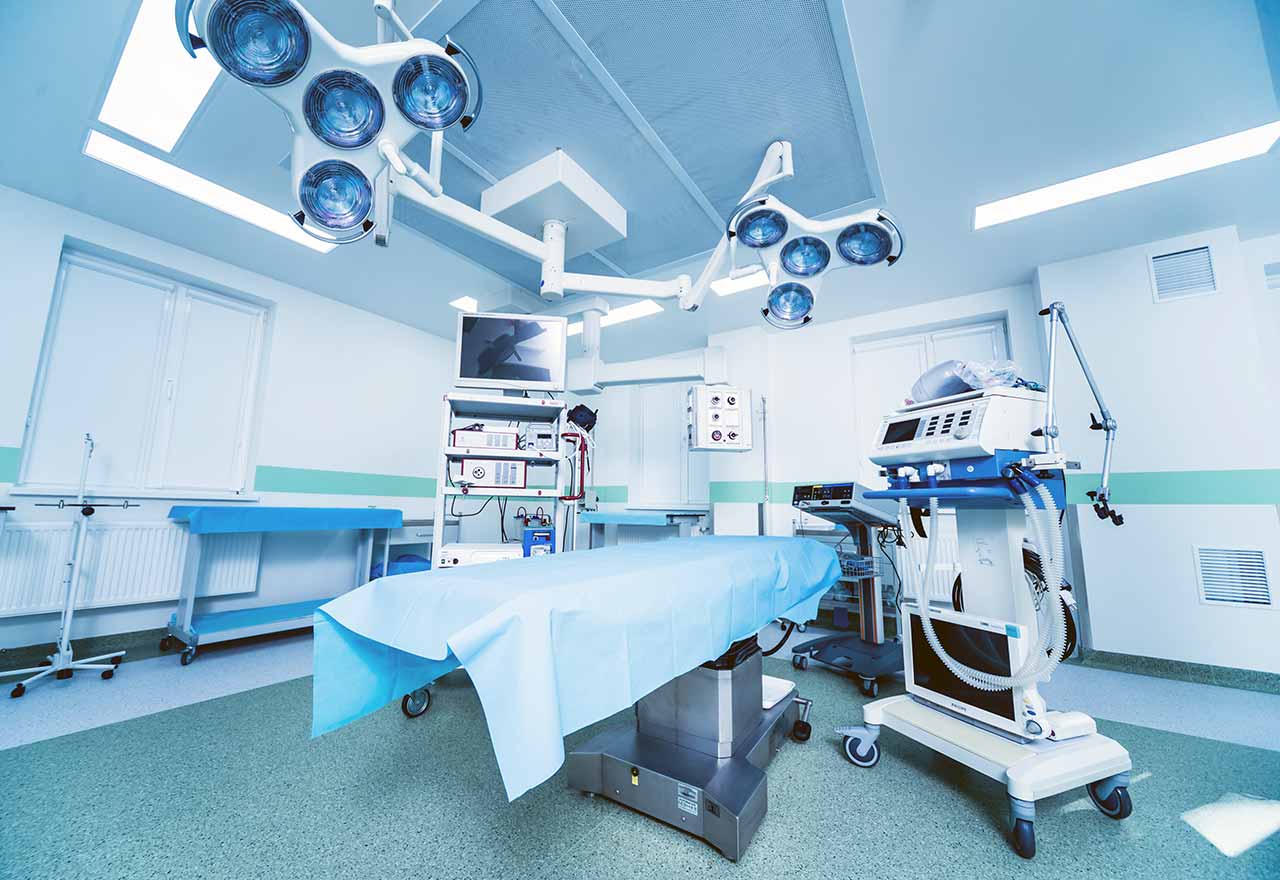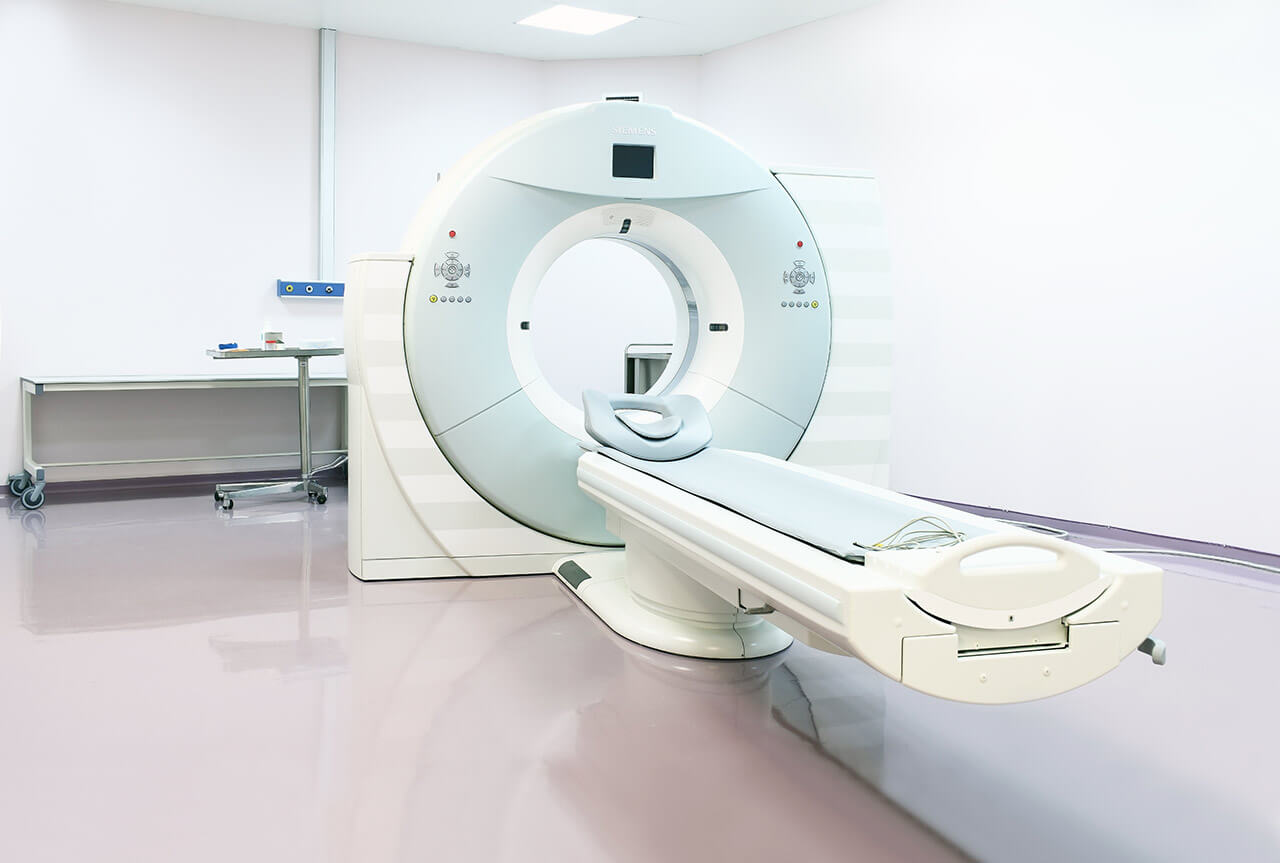
About the Department of Nuclear Medicine at HELIOS University Hospital Wuppertal
The Department of Nuclear Medicine at the HELIOS University Hospital Wuppertal offers all types of modern diagnostics and treatment using radioisotopes. The main diagnostic method available in the department is PET-CT (positron emission tomography combined with computed tomography). This technique is most often used to detect cancers. PET-CT is also used to diagnose neurological and cardiac diseases. The procedure allows doctors not only to visualize anatomical structures of the human body, but also to assess the metabolic activity of a particular tissue. The department's therapeutic offer includes radioiodine therapy for the treatment of thyroid diseases, radioimmunotherapy for CD20-positive non-Hodgkin's lymphoma, and pain management using radioactive drugs. Treatment can be both inpatient and outpatient – the optimal regimen is selected by the attending physician individually. Radioiodine therapy is carried out exclusively on an inpatient basis. The patients of the department receive medical care from the highly professional team of doctors, who make every effort to provide them with top-class services. The department is headed by Dr. med. Marco Tosch.
The department's medical team carries out radioiodine therapy for the treatment of benign (for example, goiter or thyrotoxicosis) and malignant (for example, differentiated papillary and follicular carcinoma) thyroid diseases. For malignant thyroid diseases, surgical removal of the tumor is most often required, and radioiodine therapy acts as an additional type of treatment, which the patient undergoes after the surgical intervention. The essence of radioiodine therapy is oral administration of a capsule with radioactive iodine (Iodine-131). After entering the body, the isotope is concentrated in the thyroid cells and metastases, thereby irradiating them. The final results of radioiodine therapy can be assessed approximately three months after the procedure. The effectiveness of this type of treatment is quite high, and the risk of side effects is minimal.
The department offers another innovative treatment method – radioimmunotherapy for CD20-positive non-Hodgkin's lymphoma. This type of therapy is used in several cases: recurrences of the disease, lack of response to antibody therapy, consolidation therapy after the first remission. Within two days after the therapy, the patient stays in the hospital.
The department's range of services is complemented by pain management. Radionuclide therapy is indicated for patients with osteoblastic metastases (for example, in case of breast or prostate cancer). This therapy is used to improve the quality of life or to alleviate the side effects of painkillers. The procedure involves intravenous administration of radioactive Samarium-153, which is absorbed by pathological tissues. 2-3 hours after the procedure, doctors conduct scintigraphy to assess the accumulation of the radioisotope in the metastases. The patient will feel relief in just a few days, and the effect of the therapy will last for at least four months.
Radiosynoviorthesis (RSO) is used for the treatment of inflammatory joint diseases such as chronic polyarthritis, monoarthritis and arthrosis with an inflammatory component ("activated arthrosis"). During the procedure, the radioactive substance is injected into the affected joint. After treatment, patients report alleviated inflammation and, consequently, pain relief. In addition, the affected joint is immobilized for a short time.
The department's range of medical services includes:
- Diagnostics
- PET-CT
- Scintigraphy
- Treatment
- Radioiodine therapy for thyroid diseases
- Radioimmunotherapy for CD20-positive non-Hodgkin's lymphoma
- Pain management with Samarium-153 radioactive substance for osteoblastic metastases
- Radiosynoviorthesis (RSO) for the treatment of chronic inflammatory joint diseases
- Other diagnostic and therapeutic options
Photo of the doctor: (c) Helios Universitätsklinikum Wuppertal




